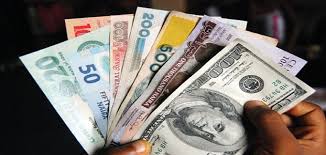The trap of being landlocked and the
trap of bad governance are other poverty traps that are chaining the countries
of “The Bottom Billion”, according to Paul Collier. Being geographically
landlocked, i.e. when a country’s geography does not support transatlantic
trade, or landlocked with bad neighbours. In development, geography matters,
but this does not absolutely imply that landlocked countries are damned.
Collier gave examples of Switzerland, Austria, and Botswana in Africa as
landlocked but prosperous countries.
Nigeria is not landlocked, geographically,
but we are surrounded with not-too-prosperous neighbouring countries. This
essentially suggests that, resource trap, conflict trap, and trap of bad
governance are the carcinogenic principalities that have eaten deep to the
fabric of our economy.
Our inability to manage our resources,
wastage spending during oil boom, and eventual lingering economic recession
during oil bust, are results of bad governance, corruption and bad policies.
Nigeria had it so rough, that at a time, stealing was not a corrupt practice. $1
million aid money was spent on Beyounce and Jay
Z. $17.8 billion was recorded illegal capital moved out of Nigeria between
2004 and 2013. The country’s sole dependency
on oil has finally become plain stupidity. Diversification will continue to be
elusive when “sharing-oil-money” has taken a centre stage in our public
governance. Power fix becomes rocket science. Nigerians are reduced to wretchedness
and poverty, while their leaders live in stupendous affluence. “The
leaders of many poorest countries in the world are themselves among the global
superrich. They like things the way they are, so it pays to keep their citizens
uneducated and ill-informed,” writes Paul Collier.
Collier
proffers certain actions and instruments of reversing the economic logjam of
the poor countries. These cores are Aid,
Military intervention, Laws and Charters, and Trade policy for reversing
marginalization. And the nine peripheral strategies are: 1) increase
neighbourhood growth spill-overs, 2) improve neighbours’ economic policies, 3)
improve coastal access, 4) become haven for the region, 5) don’t be air-locked
or e-locked, 6) encourage remittances, 7) create a transparent and investor-friendly
environment for resource prospecting, 8) rural development, and 9) attract aid.
Collier’s prescription of Aid –a sum
total of both concessional loans and grants from donors (mainly Western) to
Africa countries –as an
instrument of poverty reduction is grandstanding; his suggestion of military
intervention is condescending. But in all, he could mean well. It is the
shameful posturing of African leaders and the ruinous legacy of their
earth-shattering corruption that have reduced Africa countries to entities that
depend on hand-out to survive, and must be internationally policed so as not to
plague their nations to cycles of conflicts and civil wars. A counter-advocacy for aid-dependency in Africa is what Dambisa Moyo’s Dead Aid espouses, it is worth
alternative consideration.
Another weary suggested instrument is “Trade
policy for reversing marginalization”, instead of industrialization. This is
the particular route that has turned Africa countries into trash bins of
Europeans goods. Trade is good. Yes. But, the priority of Africa countries must
be muscling industrial strength for trade comparative advantage. We must be set to export chocolate
(finished goods from our own cocoa nuts), export Tomato paste, export palm oil,
export fruits, and import electronics, and others that are our weak niches.
Till we have our finished goods to trade in the international market, any
adoption of free trade policy, or globalization, which opens our borders to
free importation of all junks (including tooth picks), is damnation. The
Francophone countries are valid examples of such sorry state.
But Colliers’ suggestions of the need
for increasing our neighbourhood growth spill-overs and improving our
neighbours’ economic policies are rightly-posited. As he suggested, Nigeria,
just as other African countries, must improve their coastal access, and ensured
they become haven for their region. We must not be air-locked, or e-locked
(i.e. we must unlock the technology-driven economic potentials). We must
encourage remittances, and create a transparent and investor-friendly
environment through reliable legal institutions, and hassle-free regulatory
framework. Microfinancing and lending can also induce rural development. We
must do all compatible with material and immaterial peculiarities of African
economies to expunge ourselves from “The Bottom Billion.”
Read: Understanding the Sorry State of Nigeria Economy through the Lens of Paul Collier’s “The Bottom Billion” (Part I)


